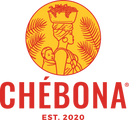After giving birth, a woman’s body enters one of its most vulnerable and powerful states. Recovery begins immediately, yet most mothers are sent home with little guidance on how to truly heal—especially when it comes to nutrition. At Chébona, we believe food is foundational medicine. What a new mother eats in the days and weeks after childbirth doesn’t just affect how she feels—it can shape her energy, hormone balance, mental health, and even how well she produces breast milk. That’s why postpartum nutrition isn’t optional. It’s essential.
Physiologically, the postpartum body is in full repair mode. A woman can lose between 500 mL to 1,000 mL of blood during delivery, whether vaginal or cesarean. Her uterus must contract and shrink. Hormones like estrogen and progesterone drop dramatically, while prolactin and oxytocin surge to initiate lactation. Tissue healing, fluid regulation, and immune system rebalancing are all happening at once. This is why postpartum nutrition must be intentional—focused on nutrient density, not just calories.
Breastfeeding mothers require 330 to 500 additional calories per day. Protein needs increase to at least 71 grams daily to support milk production and cellular repair. Key micronutrients like iron, calcium, zinc, B vitamins, magnesium, and omega-3s become critical during this time. Iron supports red blood cell formation; zinc aids in wound healing and immune support; and omega-3s, particularly DHA, have been shown to reduce the risk of postpartum depression. In fact, low levels of DHA and vitamin B12 have been directly linked to increased rates of mood disorders in the first year after birth.
What we eat postpartum also directly influences the gut-brain axis. Foods rich in prebiotic fiber, probiotics, and anti-inflammatory compounds not only support digestion, but also contribute to better sleep, more stable moods, and hormonal balance. Meals that are slow-cooked, easy to digest, and rich in warming spices like ginger, cinnamon, and turmeric can support metabolism and circulation—two systems heavily taxed after childbirth.
Nutrition also plays a critical role in lactation. Breast milk is made from the mother’s blood, not her stomach—meaning a mother’s nutritional status directly influences milk composition and quality. At Chébona, we incorporate powerful galactagogues like moringa, shatavari, oats, and healthy fats to support sustained milk production without relying on fenugreek or brewer’s yeast, which can cause discomfort for some women. Our lactation-supportive snacks and Milky Max lattes are formulated to nourish deeply while offering functional, real food-based solutions.
Postpartum depletion is a growing concern. Up to 50% of new moms in the U.S. are iron-deficient within one year of giving birth. Many experience brain fog, fatigue, low mood, and hormonal irregularities due to nutritional gaps that go unaddressed. The modern American diet, which leans heavily on convenience, simply isn’t designed to meet a recovering mother’s needs. Traditional cultures around the world, however, have long understood the healing power of food after birth. From West African pepper soups to Chinese bone broths and Indian ghee-based stews, these postpartum meals aren’t just cultural—they’re clinical in their effectiveness.
That’s why every Chébona meal is crafted with intention. We use whole, anti-inflammatory ingredients like sea moss, moringa, dates, sweet potato, and medicinal herbs. Our meals are designed to restore energy, regulate hormones, and support breastfeeding. They are low in sodium, refined sugar-free, and optimized for digestive ease.
If you are a new mother—or supporting one—know that what you eat after birth matters. It’s not about bouncing back. It’s about building forward, from a place of nourishment and strength. At Chébona, we deliver more than food. We deliver a return to tradition, backed by modern science. Your fourth trimester deserves that care. Your body deserves that wisdom. And your healing starts here.





